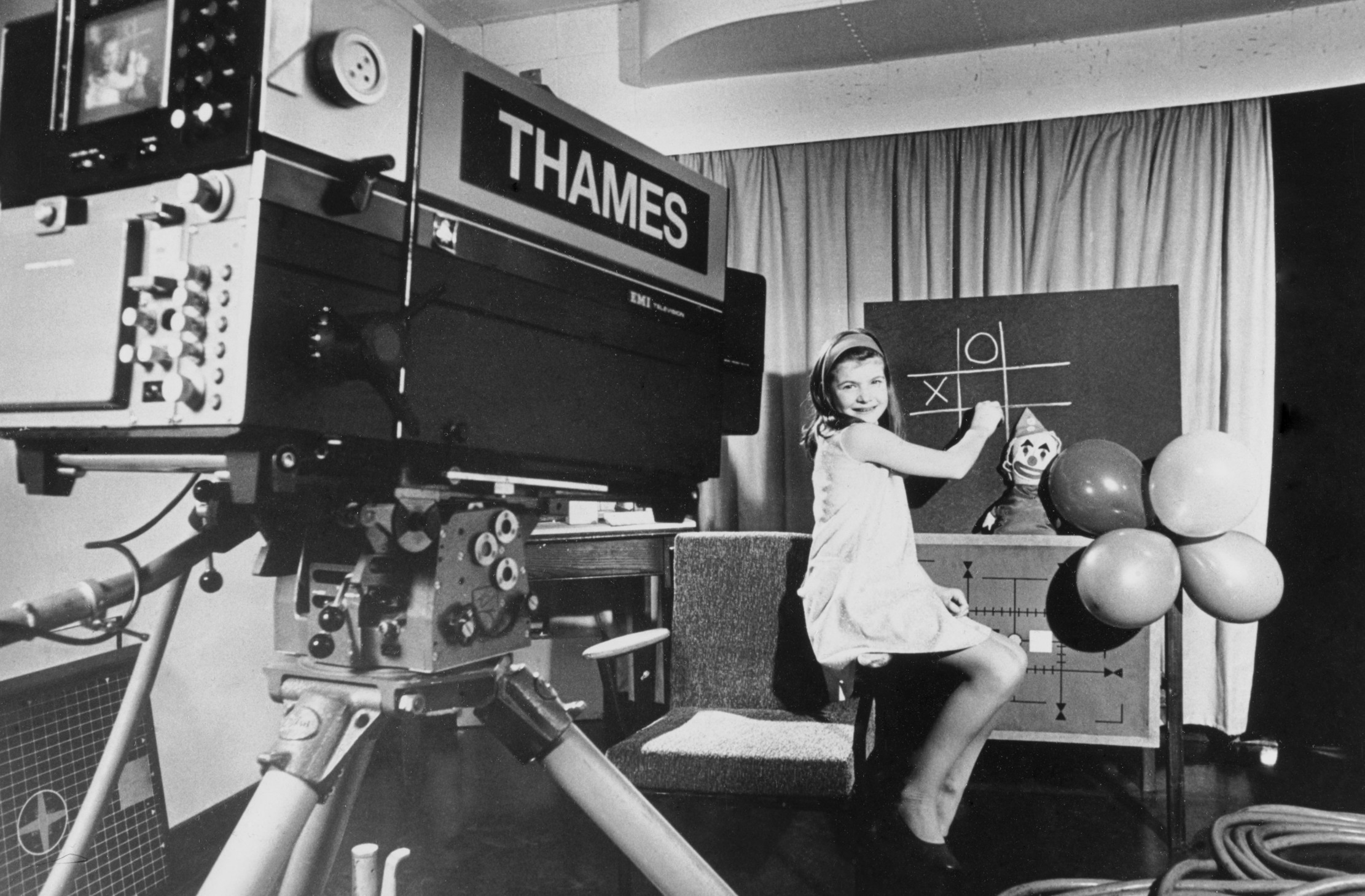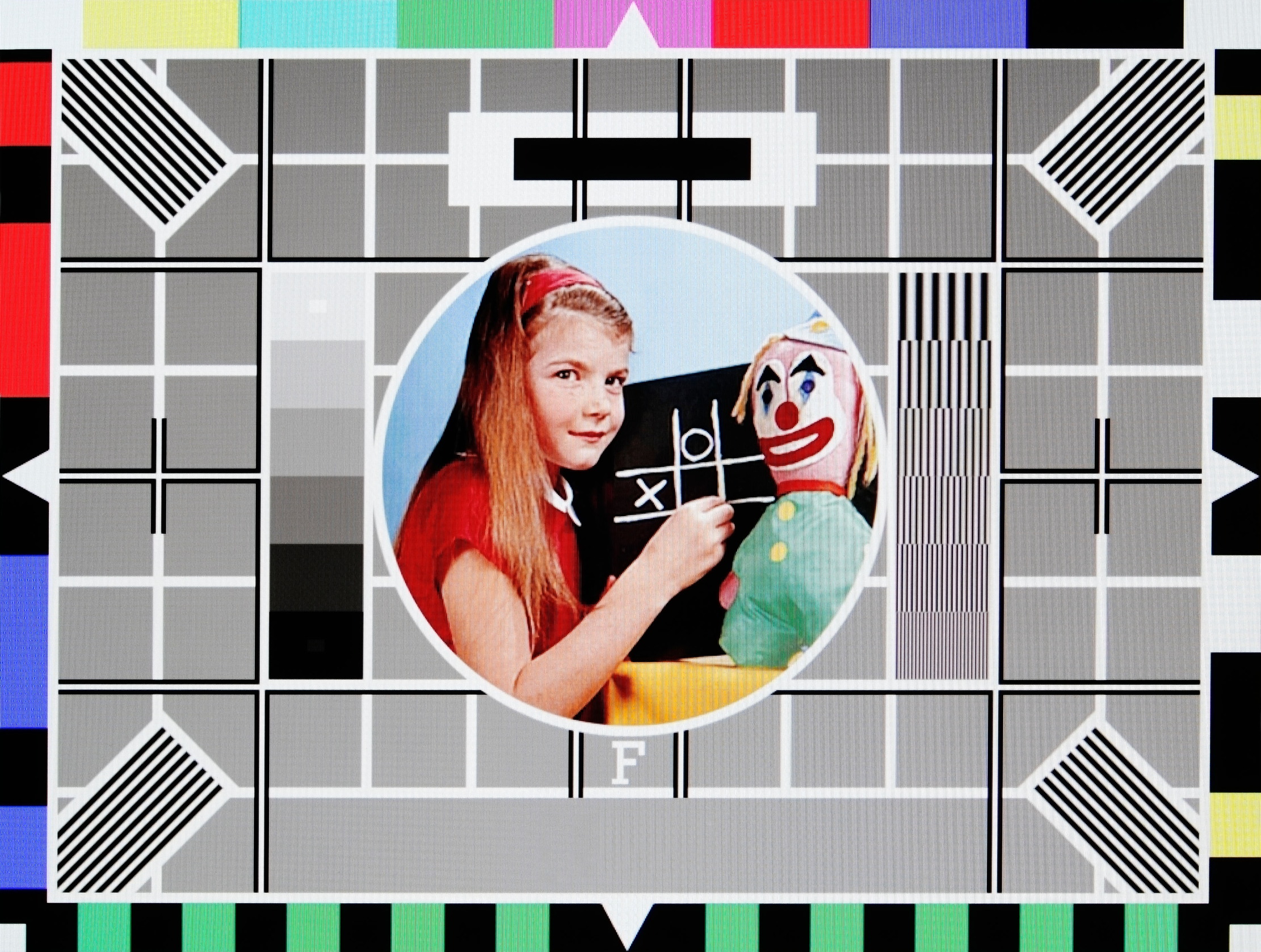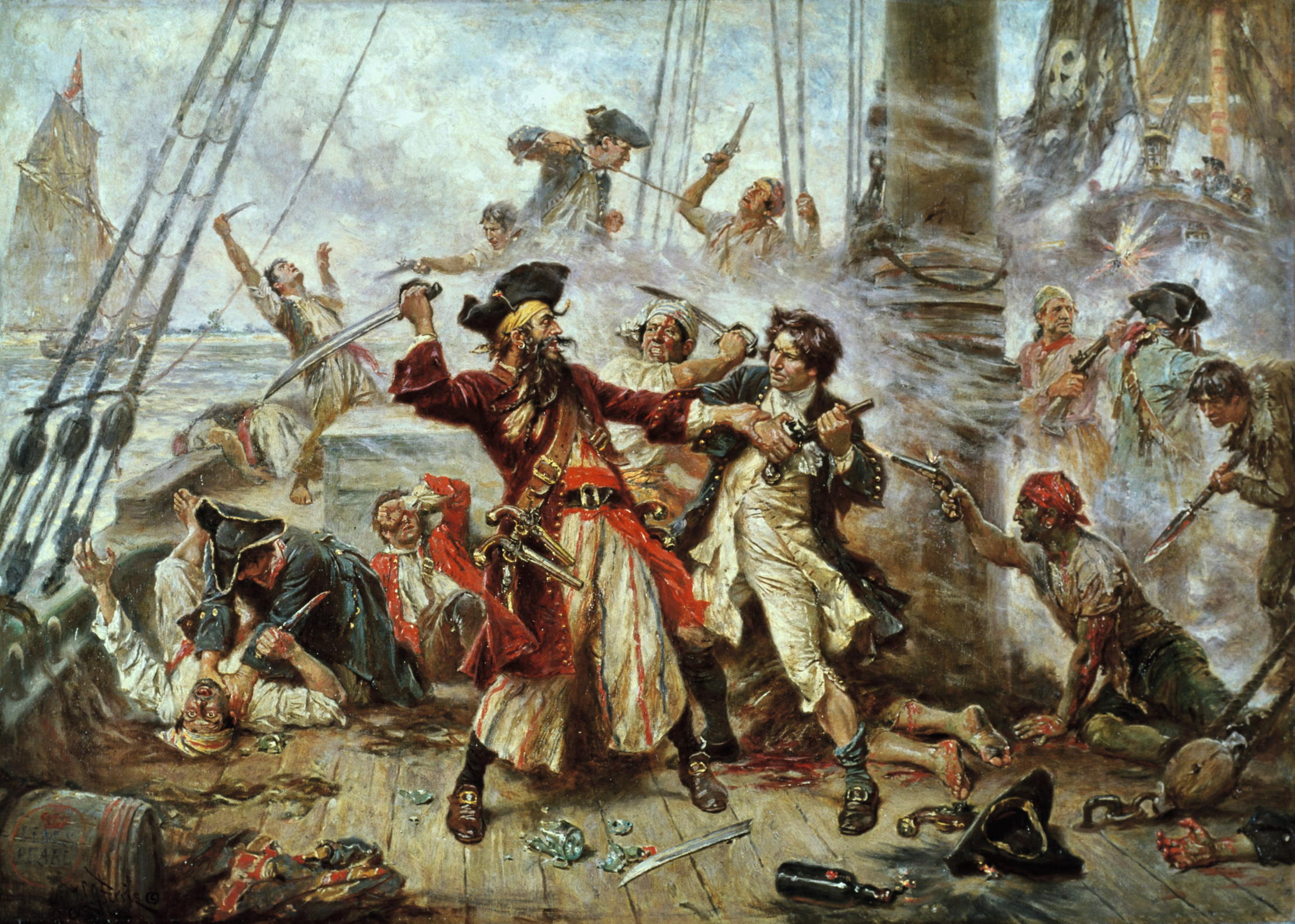Curious Questions: Which person has spent the most time on TV?
Is it Elvis? Is it Queen Elizabeth II? Is it Gary Lineker? No, it's an eight-year-old girl called Carole and a terrifying clown. Here is the history of the BBC's Test Card F.


It’s a long way from the corner of a 1970s British living room to a mobile music-app playlist in 2024. Yet there is one image that has, with peculiar stubbornness, crossed that analogue-to-digital rubicon.
If you were home from school with chicken-pox in the era before This Morning and Countdown, then, should you have switched on your parents’ wood-encased, steamer-trunk-weight television before hiding under an eiderdown on the sofa, the image presented to you would be that of a girl playing a game of noughts and crosses on a blackboard with a predictably sinister-looking clown.
That clown was called Bubbles and that girl was eight-year-old Carole Hersee. She would go on to become the person who, to date, has clocked up the most screen time of any individual in UK history (about 70,000 hours so far) as the face of the BBC Test Card.
Fast forward half a century and, if you search for ‘retro playlists’ on a music app on your phone, it won’t be long before you see Ms Hersee again; this time as the face of innumerable mixes featuring big band, bossa nova, light orchestral and other types of muzak.
To listen to ‘test card music’ or to see the girl — whose father, George Hersee, created the card when working for the BBC in 1967 — is an experience that would bewilder anyone born after 1990.
For those of an older vintage, the retro appeal of the test card has a committed fanbase, taking a generation of Britons back to when playing four hours of songs with titles such as Flying Over San Jose and Canzona D’amore was considered a legitimate way of spending licence-fee money and a soothing accompaniment to school sick days.

Yet, the test card served a more pragmatic purpose. ‘Officially described as Trade Test Transmissions, test cards were radiated specifically to enable engineers to work on television sets, in their workshops and in viewers’ homes and to supply a signal for the retail trade, so prospective buyers of new sets would be able to see a picture in the shops, albeit a still one,’ explains Stuart Montgomery, chairman of the Test Card Circle, a society for fans of the test card that has about 200 members, a quarterly magazine and an annual convention held in Worcester.
Exquisite houses, the beauty of Nature, and how to get the most from your life, straight to your inbox.
‘There was no real necessity to have music accompanying the test cards, but there was a requirement to have a sound signal,’ Mr Montgomery continues. ‘One of the attractions for enthusiasts was due to the simple fact that we weren’t told what the music was and that it wasn’t available to purchase. It therefore became like a secret drawer.’
Sightings of the ‘Test Card F’ featuring Ms Hersee are something of a white rhino today, as 24-hour coverage and the lack of need for engineers to ‘tune’ televisions for light, sound and tone have rendered the card all but redundant. Yet Ms Hersee (now 65 and a costume designer) has crossed to the digital world, as the face of playlists and on the BBC itself.
Between 2017 and 2020, should you have encountered a glitch on the BBC website (the technical term is an HTML error), when you were accidentally taken to a page that no longer existed, you would have seen Bubbles, repurposed with the accompanying slogan of ‘error 404- this page can’t be found.’ The girl, however, was nowhere to be seen.
‘I became fed up hearing about it. It should have gone years ago,’ Ms Hersee said in a BBC interview in 2001. With her face now all but extinct from flat screens and Bubbles replaced by the equally retro-accented Clangers on the Beeb’s error page, Ms Hersee’s wish, for now at least, appears to have come true.
Rob Crossan is a journalist and broadcaster

Curious Questions: Why do we still love pirate stories, 300 years on from Blackbeard?
Tales of swashbuckling pirates have entertained audiences for years, inspired by real-life British men and women, says Jack Watkins.
Rob is a writer, broadcaster and playwright who lives in Brixton, South London. He regularly contributes to publications including the Daily Mail, Daily Telegraph and Conde Nast Traveller. Rob is the Special Correspondent for the BBC Radio Four programme Feedback and can also be heard on the From Our Own Correspondent programme on BBC Radio Four and the World Service. His first play, 'The Gaffer', premiered at the Underbelly Theatre as part of the Edinburgh Fringe in 2023.
